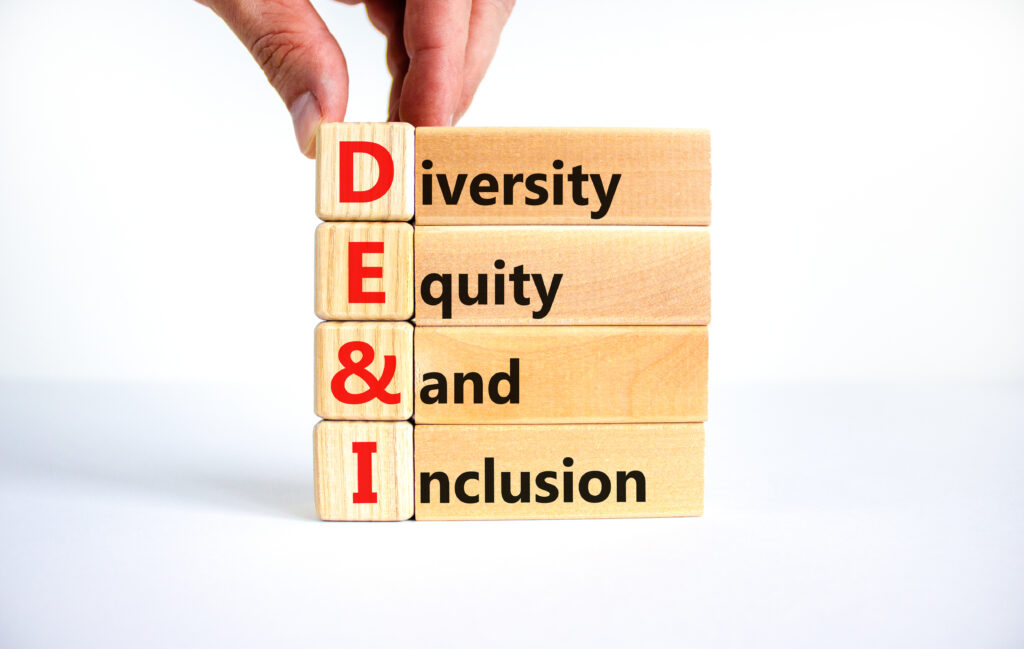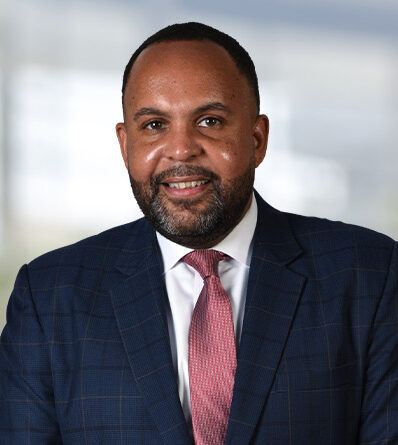Employment Law Report
DEI Programs at a Potential Legal Crossroads (or Not)

By: R. Joseph Stennis, Jr.
The “racial reckoning” prompted by the George Floyd and Breonna Taylor incidents in 2020 went ablaze all over America. Employers met the call for change by setting off a substantial surge in hiring Chief Diversity Officers and implementing Diversity, Equity & Inclusion (“DEI”) programs and policies for publicly traded and private companies alike. Even the legal profession took notice, with many of us expanding legal services to include DEI training and advice. Job postings with “DEI” in the title surged 92% from July 2020 to July 2021. Things were changing in the workplace all over America at a lightning pace due to the impact of social awareness in a post COVID-era.
However just as fast as the surge for DEI programming took shape, so too did it decline over the past couple of years. Economic pressures in part have been the contributing factor for the deceleration of DEI jobs and other related careers in many corporate HR departments. If economic pressures were not enough, the other perceived blow to the DEI space was the U.S. Supreme Court’s (“SCOTUS”) ruling earlier this year involving Harvard’s and University of North Carolina’s admissions policies and practices. In Students for Fair Admissions, Inc. v. President & Fellows of Harvard College, SCOTUS outright rejected the use of race-conscious admissions in higher education on constitutional grounds. The case does not apply to corporate employers. However, the perceived impact of it on lawsuits being filed by plaintiffs challenging DEI policies in the workplace cannot be ignored.
To be clear, the SCOTUS ruling applies solely to affirmative action policies at colleges and universities. It does not affect a private employer’s desire to create a more diverse workforce. Even the Chair of the Equal Employment Opportunity Commission (“EEOC”), Charlotte Burrows, has been quoted recently as saying that “it remains lawful for employers to implement diversity, equity, inclusion, and accessibility programs that seek to ensure workers of all backgrounds are afforded equal opportunity in the workplace.” While Ms. Burrows’ comments are very telling at least from the top brass of the EEOC’s perspective that DEI programs are not in the cross hairs of the law, that certainly has not stopped a floodgate of recent litigation alleging otherwise.
In August of this year, Edward Blum, who was a key strategist in the Students for Fair Admissions, Inc. case, filed a lawsuit by way of his other organization (i.e., American Alliance for Equal Rights) against Fearless Fund, which is a venture capital group. Fearless Fund has a program that provides $20,000 grants to Black female entrepreneurs. Mr. Blum claims the program represents “express and intentional racial discrimination in the making of contracts” pursuant to 42 U.S.C. §1981. 42 U.S.C. §1981 derives from section one of the 1866 Civil Rights Act, a Civil War-era law designed to protect former enslaved Black people from racial bias in contracting. Section 1981 has also been interpreted by courts for decades as protecting White people from racial discrimination as well. The case was initially filed in the U.S. District Court for the Northern District of Georgia, and a preliminary injunction was requested. The district court judge denied Blum’s request for the injunction. Blum filed an appeal to the 11th Circuit Court of Appeals regarding the injunction. On September 30th, in a 2-1 vote, the appellate court sided with Blum that Fearless Fund’s program was “racially discriminatory” and as a result, ordered to temporarily block the company from considering applications for grants from businesses led by only Black women while the case was pending in the district court.
Blum has two additional lawsuits against employers with respect to their DEI policies being allegedly racially discriminatory in violation of Section 1981. Both lawsuits are against multinational law firms, Perkins Coie, LLP and Morrison Foerster, LLP regarding their minority fellowship and scholarship programs. Perkins Coie has received numerous DEI recognitions and rankings over the years. At issue in the lawsuit against them are the firms’ fellowship programs for first and second year law students that are from underrepresented backgrounds. Similarly, Morrison Foerster has a forty year track record of sponsoring legal diversity scholarship programs, as well as fellowship programs designed for minority students. In both cases, Blum is requesting the court permanently bar both firms from continuing to have these respective programs in place.
These types of scholarships and fellowships are also common at big and even midsize law firms (as well as corporations). Even the American Bar Association has a $5,000 diversity scholarship. How both of these cases play out could potentially have a chilling effect on any employer’s willingness to continue with these type of (as well as other) diversity programs.
In addition to Mr. Blum’s cases, employees are also filing lawsuits challenging DEI policies. These employee-based cases thus far have been based on reverse race discrimination and/or retaliation claims. For example in August of this year, a group of current and former employees sued newspaper giant Gannett in a class action alleging that its internal policies discriminated against White employees. Specifically, the plaintiffs allege they were either terminated or passed over for promotions in favor of women or people of color in order to comply with Gannett’s diversity policy. Supposedly, Gannett has an internal policy for the company to better represent the demographics of the communities it serves by 2025. The case was filed in the U.S. District Court for the Eastern District of Virginia.
Also, a former White male corporate lawyer sued FirstEnergy recently alleging the company fired him after he expressed concerns about the company’s DEI program. The lawsuit was filed in the Court of Common Pleas of Cuyahoga County, Ohio. The Plaintiff alleges his termination was discriminatory and retaliatory. Just three years ago, the New York Times recognized FirstEnergy for its “rigorous DEI program” which was launched in 2018. The program, amongst other things, links executive bonuses to hitting certain DEI metrics.
What the outcome and implications of any of these cases will be, only time will tell. For the employer dedicated to a workplace replete with diverse talent and ideas, such a stance would not be violating the law. The EEOC does not currently view DEI programs as either being discriminatory per se and/or violating Title VII of the Civil Rights Act of 1964. That said, be inclusive of ALL when creating and implementing DEI programs. Review policies. Tweak organizational systems as needed to ensure a level playing field. This may be a good time for a “reset” to ensure clarity and address concerns, if any, with respect to company policies that address diversity. For those companies in it for the long haul regarding DEI, be reasonable. Diversity of background, experiences, and thought at the end of the day has been proven time and time again to yield favorable results to a company’s bottom line.
